Retail Beauty has previously reported on L’Oréal’s global sustainability program, titled L’Oréal for the Future, and its core targets that include carbon neutrality by 2025, 100 per cent re-used or recycled water by 2030 and 95 per cent of ingredients in formulas to be bio-based by 2030.
Other goals cover 100 per cent of the plastics in packaging to be from recycled or bio-based sources by 2030, 100 per cent of employees from strategic suppliers to be paid at least a living wage and helping 100,000 people from disadvantaged communities to gain access to employment over the coming decade.
The French multinational, which is the biggest beauty company in Australia and globally, showcased its sustainable initiatives from brands across all four of its divisions – L’Oréal Luxe, Consumer Products, Active Cosmetics and Professional Products – across the skincare, sun protection, haircare, makeup, and fragrance categories.
The event presented an immersive beauty experience to highlight the ‘best practice’ research and innovation that is driving L’Oréal’s dedicated sustainability journey at the L’Oréal Hair Academy in Sydney and Melbourne.
Underpinned by education and connection, the engaging guest journey included bespoke, one-on-one consultations with L’Oréal’s skincare professionals, makeup artists, and hair stylists.
Speaking exclusively with Retail Beauty, CEO L’Oréal Australia & New Zealand Rodrigo Pizarro said although sustainability was not new for L’Oréal, it had become a paramount pillar for the group across the globe.
“Creating an immersive and interactive journey to exhibit our sustainability journey was paramount,” he said. “L’Oréal Group’s portfolio of international brands is moving toward 2030 with dedicated initiatives to create a healthier planet. As a leading beauty company, we understand that our transformation should be geared to inspire, and act as a catalyst for definitive change.”
Rodrigo said as an ethical and engaged business, L’Oréal was actively addressing the issues that threatened our precious environment, to create a healthier planet for today and for tomorrow.
He said L’Oréal also must lead by example and that the company’s sustainability initiatives were in motion, and forever evolving to anticipate new challenges.
Some key brand initiatives:
- Garnier – currently, 65% of ingredients used by Garnier are bio-based or derived from abundant minerals. The brand is on-track to reach its 95% bio-based goal by 2025.
- Kiehl’s – 98% of Kiehl’s’ products are formulated with a renewable ingredient that can be replenished or regrown.
- Skinceuticals – by 2025, 40% of the plastic used in skinceuticals packaging will be comprised from recycled materials.
- Lancôme – the brand’s new balm-based, serum-infused Hypnôse Le 8 Mascara is packaged in a pure glass vessel made from 15% recycled glass with recyclable plastic cap. The product’s wand features an ultra-soft, defining brush made from plant-based fibres.
- Armani Beauty – is committed to reducing its carbon footprint by an additional 25%, and to achieving carbon neutrality for its entire product portfolio by 2025.
- YSL Beauty – the Ourika Community Gardens harness solar power and employ farming techniques that avoid chemicals, while promoting plant and animal diversity. A community of local Berber women has been set up to tend the gardens.
- essie – has a 100% vegan product portfolio, formulated with no animal derived ingredients, and its 8-free status.
Guests were also introduced to refillable products from three key brands – Armani Beauty’s My Way Intense EDP, Lancôme Absolue Soft Cream and YSL Beauty Pure Shot.
Images from the launch event below. Photos by Byron Martin photography.


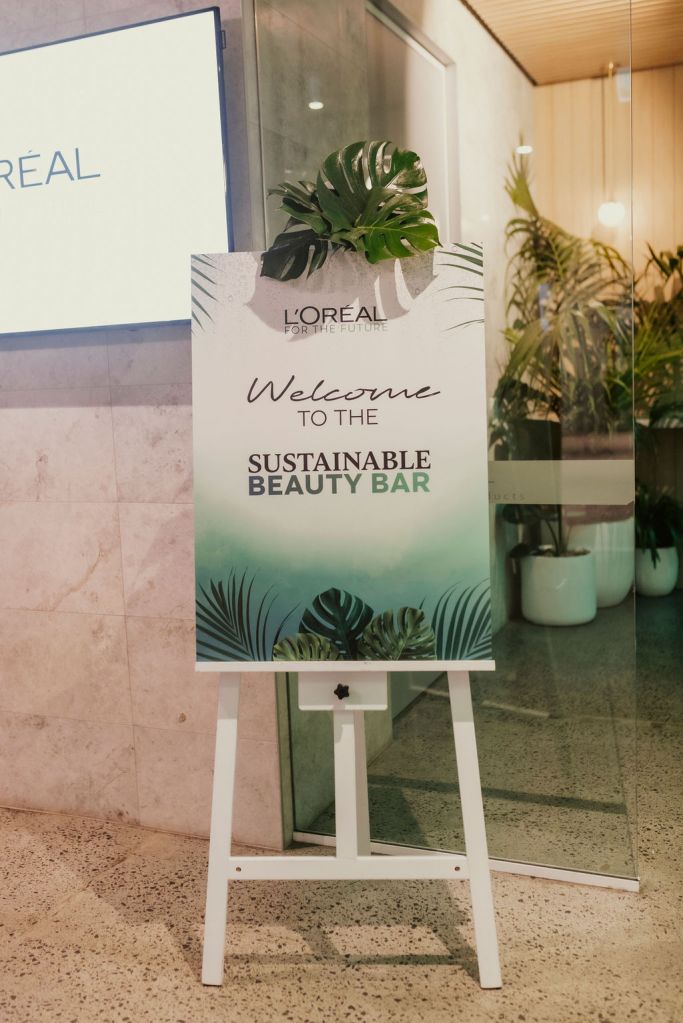
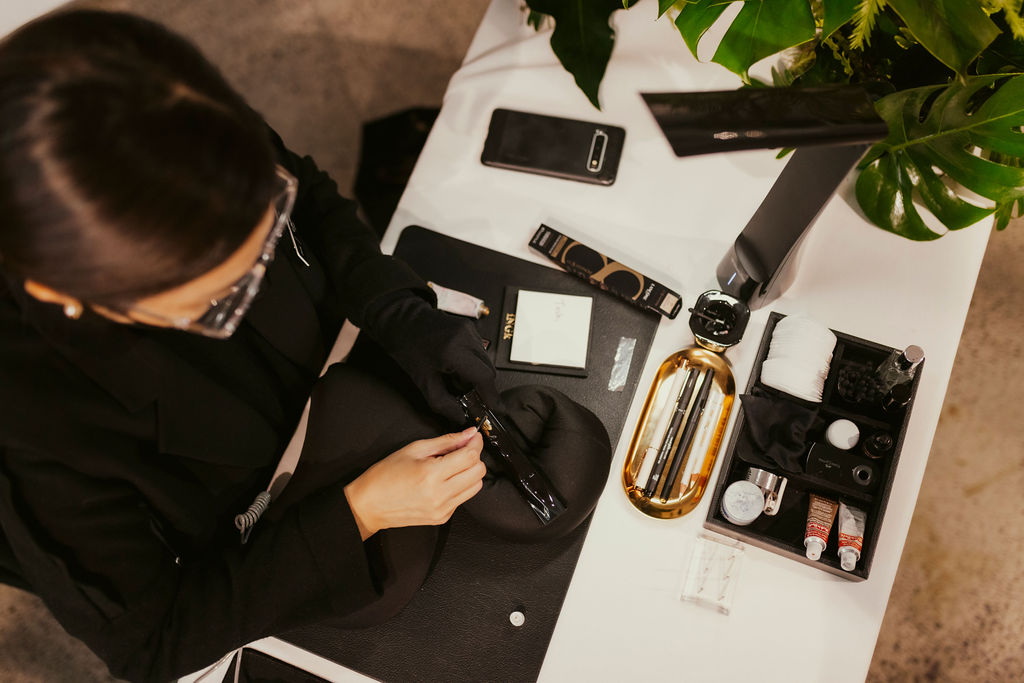
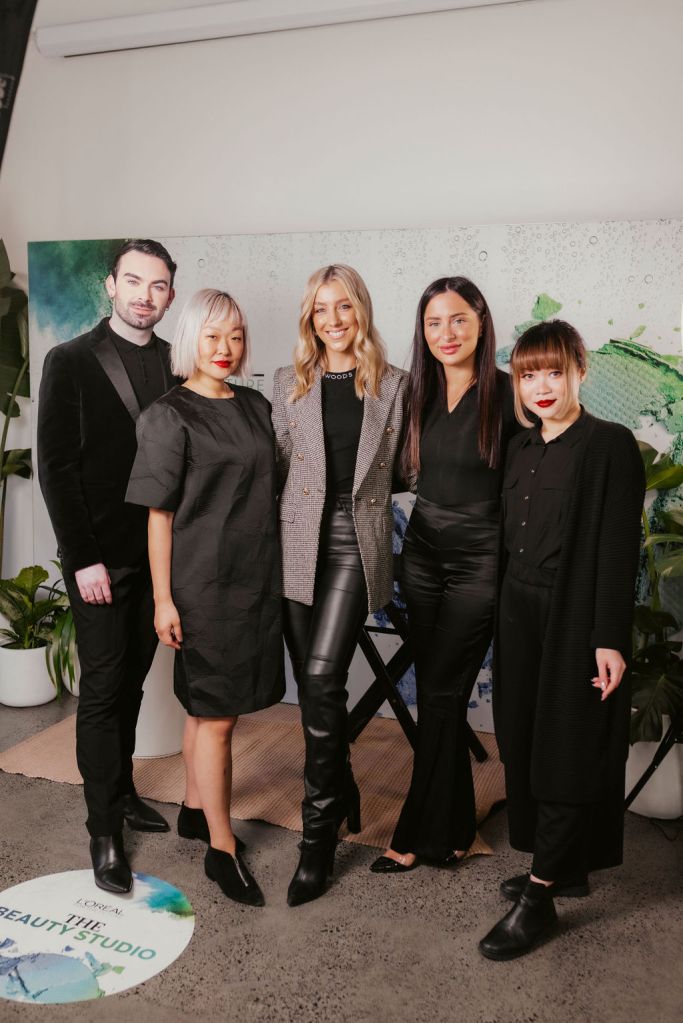


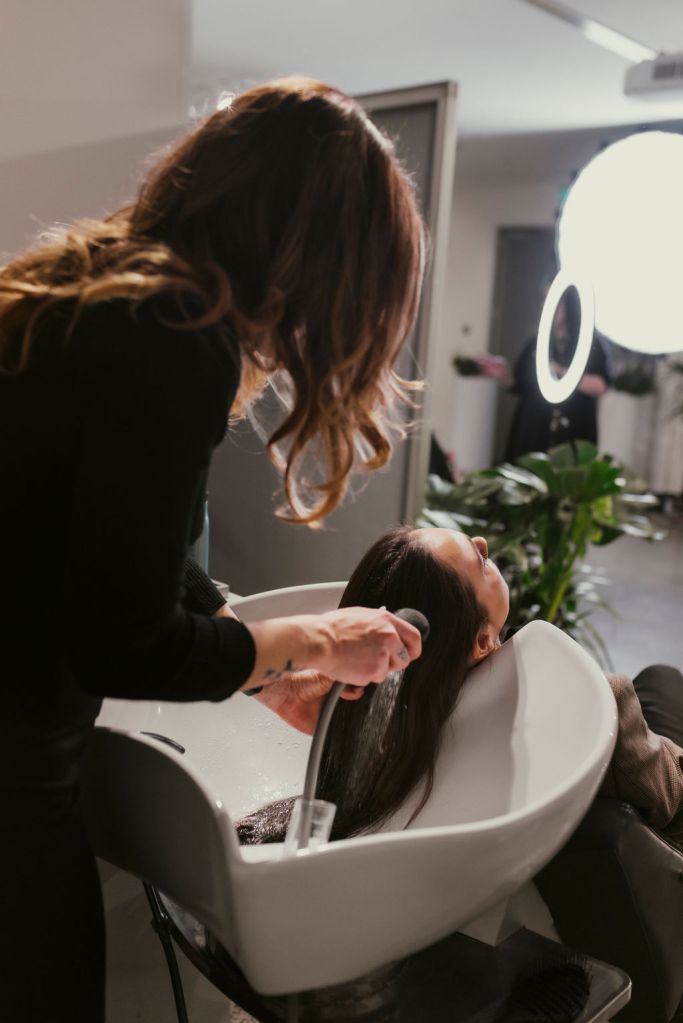
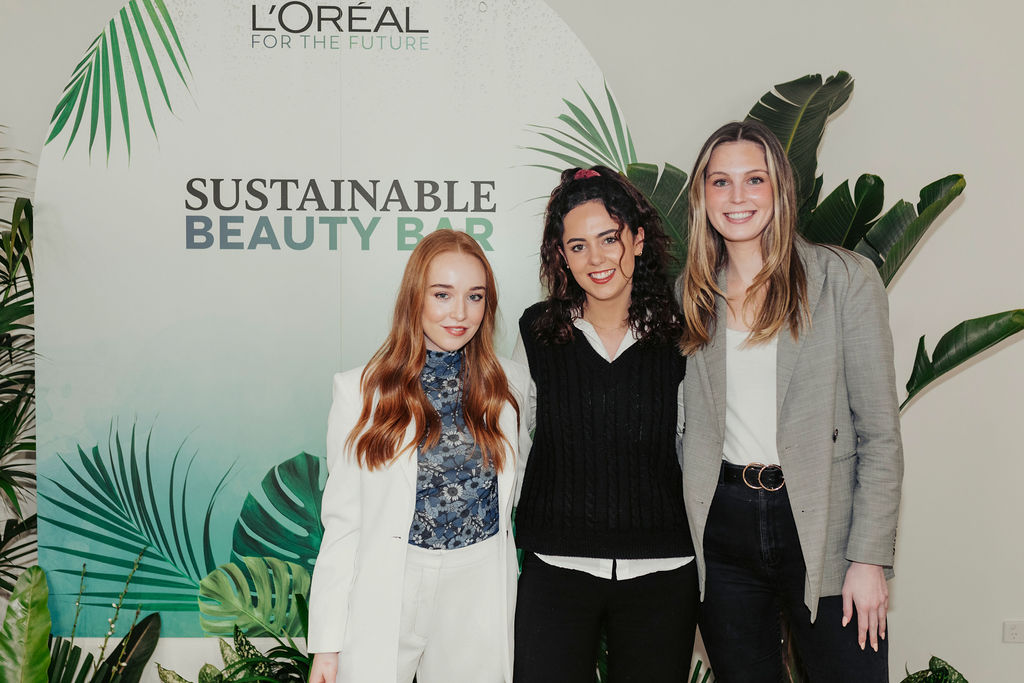
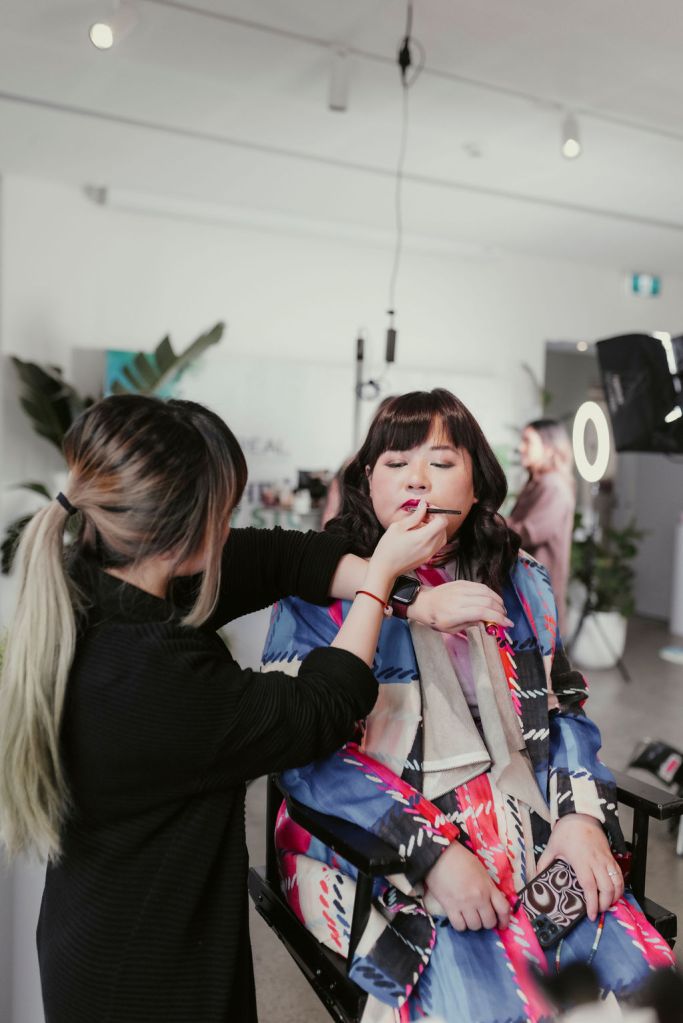
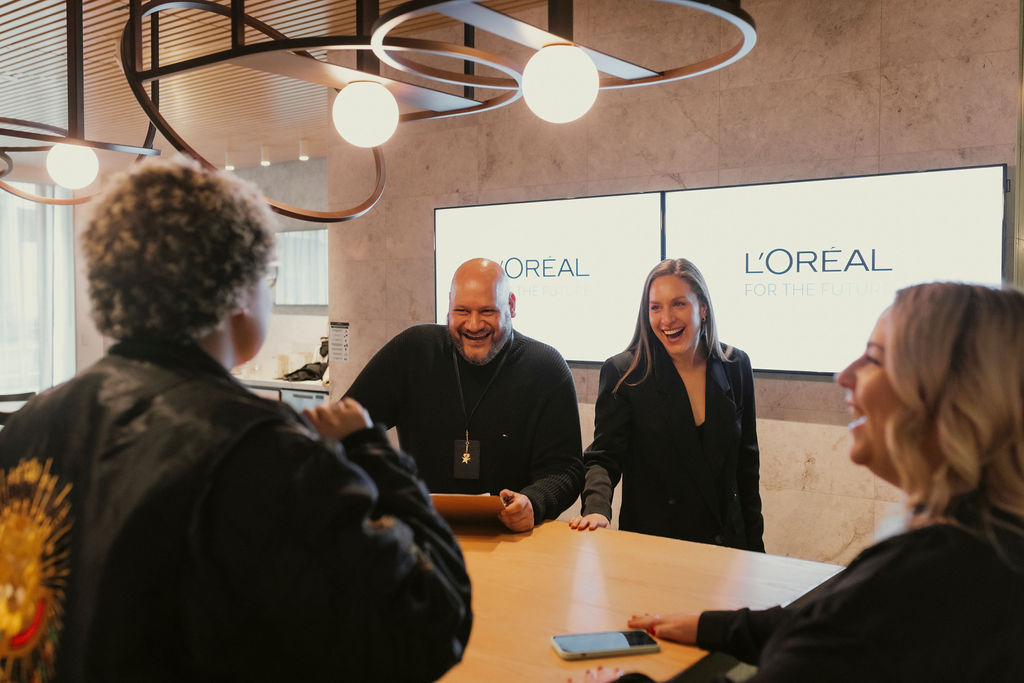



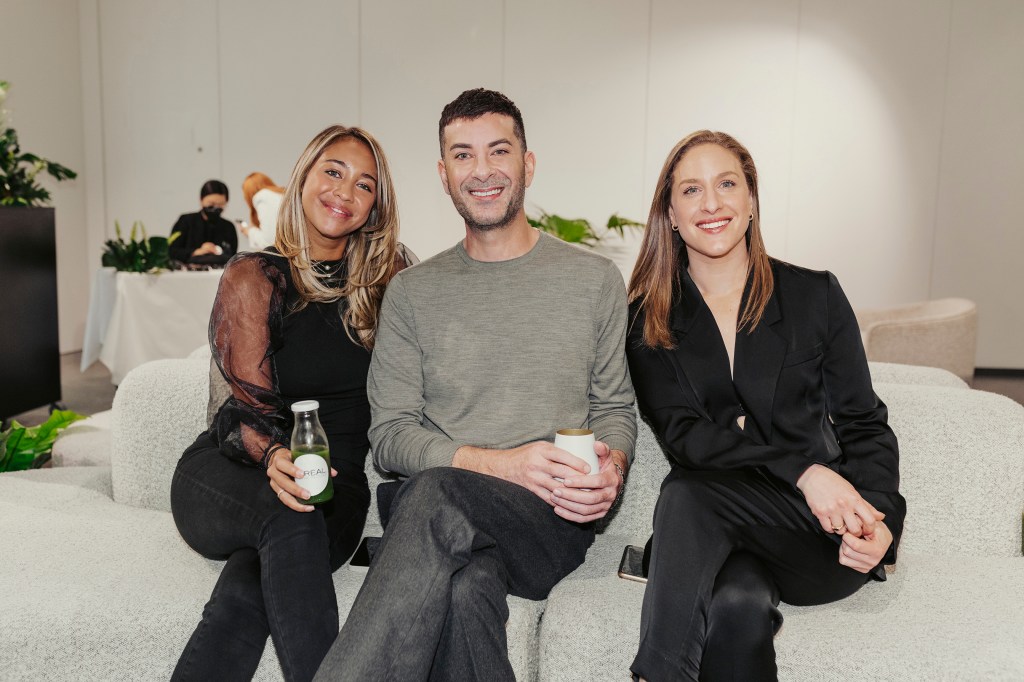
Read the current issue of our digital magazine below:
- For more news and updates, subscribe to our weekly newsletter
- Follow us on Instagram
- Like us on Facebook
- Connect with us on LinkedIn

